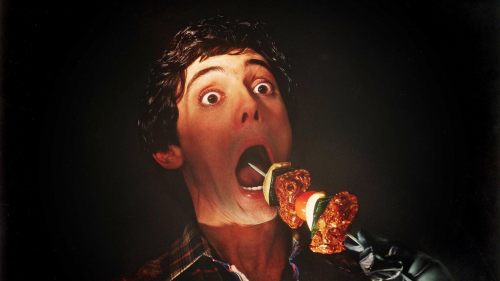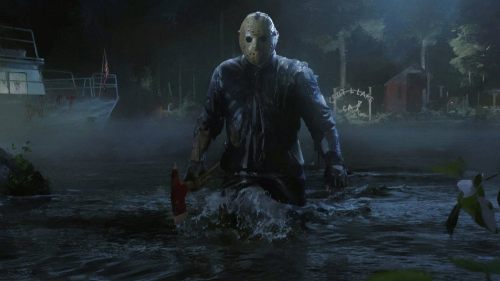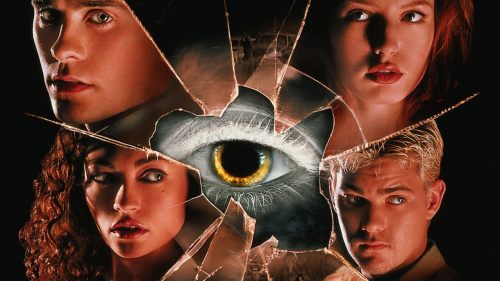Love Is Hate: THE LOVE BUTCHER Lives Up To Its Title
“You call that animal passion love? I call it hate!”
If you want “alternative” views of love, look no further than exploitation cinema. The best exploitation movies are products of strange, incomprehensible, and sometimes sick minds. They present their creators’ ideologies and outlooks through their bizarre characters in an almost wholly unfiltered fashion, because on movies that cheap, there’s often nobody around to really tell the director “no.” That’s how you get trash auteurs like Russ Meyer and Andy Milligan and Doris Wishman; it’s how you get Pink Flamingos and Glen or Glenda.
It’s also how you get 1975’s The Love Butcher.
A strange sort of proto-slasher, The Love Butcher appropriately rips apart almost all notions of love. Romantic, sexual, brotherly, motherly - none are safe from The Love Butcher. Originally titled The Gardener, it tells the story of Caleb, a “mental and physical cripple” battling with Lester, his misogynistic, murderous alternate personality, as cops and a journalist investigate Lester’s murders. Shot in twelve days, for $40,000, in 2.35:1 Techniscope (!), it examines love and hate through a sleazy trash filter that just doesn’t exist nowadays - probably for good reason.
Even amongst The Love Butcher’s good guys, there’s no such thing as a successful romantic relationship. Our ostensible hero, beat reporter and amateur investigative journalist Russell (Jeremiah Beecher, in his only film role), has a relationship with partner Flo (Kay Neer, also in her only film role) that could at best be described as “forced.” She wants to get married, but he’s a consummate journo, married to the job. They argue constantly, and even Russell’s reluctant marriage proposal comes in the middle of a suspicion-laden fight.

Another innocent couple, Carl and Sheila, have a similarly messed up relationship. Sheila, played by a 19-year-old Robin Sherwood, is sexually unsatisfied by Carl, a decidedly older than 19 Louis Ojena, who constantly complains about the “modern jazz” the “kids” are listening to. Carl withholds sex from Sheila because it “drains your blood and robs you of your vital energies,” which (as you’ll see) isn’t actually all that different a philosophy to that of the movie’s antagonist. In The Love Butcher, the only kind of romantic love is the kind that comes with conditions, and under duress.
The Love Butcher would be nothing without Erik Stern’s captivating dual performances as Caleb and Lester, the two duelling personalities of the titular killer. It’s one of the best performances in exploitation: funny, scary, and completely deranged. The film was written for Stern as a showcase piece, and in a just world it would have propelled him to superstardom. Stern is magnetic, whether he’s playing poor, gimpy Caleb, smooth-talking lothario Lester, or Lester’s more sinister side.
Caleb and Lester have a jealous, hateful relationship with each other that seems silly at first but becomes more fascinating as the story progresses. The entire movie long, the two personalities battle for control over their body, with Lester, the self-described “great male Adonis of the universe,” generally coming out on top. You get the feeling these two personalities have spent a lifetime growing to hate each other, spending every evening tearing into their respective insecurities.
“Your ugliness is on the outside...theirs is hidden away.”
Lester’s view of women is even more toxic than his view of Caleb. The Love Butcher is filled with ostentatious, purple rants about women and their supposedly inherent evil. These “nymphs,” contends Lester, use their “bottomless body pits” and “feminine pulchritude” to “drain the energy” from men. It’s one of the most quotable films ever written, but you’d never want to quote it in public. I mean it - I’ve got half a page of amazing, amazing Lester dialogue for which I can’t find a place in this piece, and it’s all some of the most luridly hateful stuff you’ve ever heard. Lester’s killer dialogue is either a genuine misogynist screed or a hilarious parody of it - but as anyone familiar with the subject will know, it can be difficult to tell the difference with some of these people.

Caleb, on the other hand, is resigned to never being able to experience love. “I’m a gimp, ma’am,” he protests to Flo, the one woman who actually shows him any kindness. He refuses to believe that anyone could love such a monster, living alone and shunning human contact except where necessary. You really start to root for the guy when Flo starts showing him some attention, even if you know Lester is lurking beneath the surface.
The film’s final scenes see Caleb rising above Lester’s influence, hacking into the polystyrine mannequin that represents him to pieces. It’s a testament to Stern’s performance that he can make a scene of talking to a wig feel psychologically compelling. After symbolically murdering Lester, Caleb emerges triumphant, declaring himself free and beautiful, before flashing back to yet another broken love: his mother’s.
Yes, even motherly love is rotten in the world of The Love Butcher. As we watch Caleb’s flashback, we discover that it’s actually Lester’s: his little brother Caleb died when he was a child. At the funeral, their mother tearfully proclaims that Lester should have died instead, setting in motion a lifetime of mental issues. Lester’s now-apparent guilt and inadequacy issues throw the whole rest of the film into the new light. It’s questionable psychology, but the message is consistent with the rest of the movie: love is hate.
As far as attributing a source for the film’s weird nastiness, it’s sort of hard to tell. The original director, Mikel Angel, delivered a film that screened disastrously, at which point cinematographer Don Jones was tasked with reshooting half the movie. Most of the truly misogynistic and psychologically bizarre stuff comes from Angel’s scenes, while Jones drops in much of the film’s tonally jarring (but genuinely funny) comedy. Angel never directed another film, though he did write several, including Female Fever (also starring Stern), Psychic Killer, and the similarly bizarre Grotesque (with Linda Blair).
Whoever it was that dropped such rancid ideas about love and relationships into The Love Butcher, I’m glad they did. It just makes it all the more perversely fascinating to watch. It’s available on a limited-pressing Blu-Ray from Code Red, or a shitty pan’n’scan bootleg from God knows where. Happy Valentine’s, everyone.



